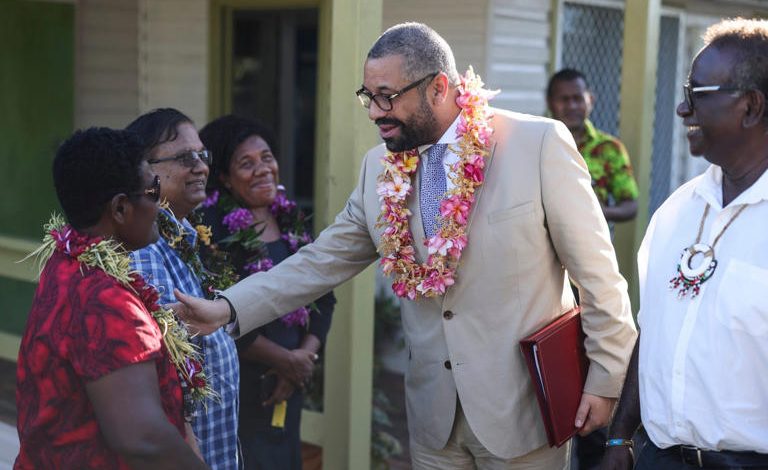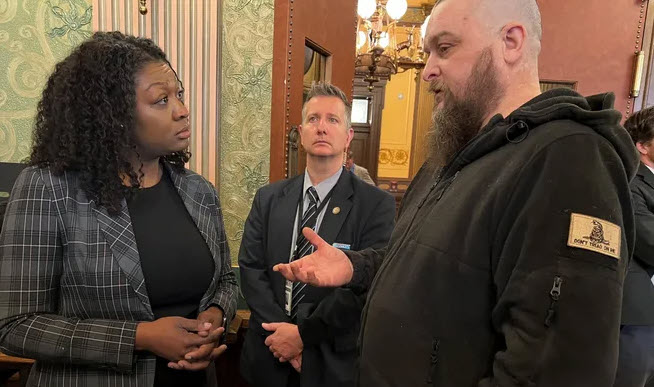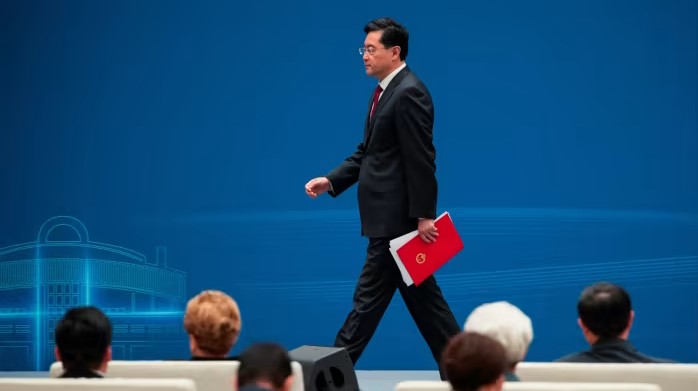
China’s ‘free money’ comes at a cost in the great game to control the Pacific
Story by Nicola Smith, Charley Piringi
21 April 2023
As James Cleverly took the rutted gravel road from the main airport of the Solomon Islands that leads to the prime minister’s residence, he passed under a flag bearing the red background and yellow stars of the People’s Republic of China.
It fluttered prominently on Thursday above the motorcade passing the construction site of a $50 million (£40 million) stadium for the upcoming Pacific Games – a gift from Beijing and a giant symbol of its growing footprint in the Solomons.
Placards saying “China Aid for Shared Future” lined the corrugated fences around the site.
For decades the Solomon Islands, a visual paradise but impoverished country of some 700,000 people, faced relative diplomatic obscurity to the point where the US closed its embassy in 1993.
But a secretive “security pact” between Beijing and Honiara in 2022 has put it firmly back on the radar.
A string of other deals, including the athletics stadium “state gift”, signalled China tightening its grip around an island chain which is fast becoming ground zero in the great game to control the Pacific.
Fears are growing from Washington to Tokyo of a carefully crafted “elite capture” of the Solomons that could have a potentially huge cost to Western security.
Mr Cleverly, the foreign secretary, arrived in the humid capital of Honiara on Wednesday as part of a push by the West to counter China’s growing footprint across the Asia Pacific, where several other obscure island chains are in a tug of war between Beijing and the West.
In an interview with The Telegraph, he warned that “free” Chinese money comes at a cost, hinting at the well-documented “debt trap” diplomacy China uses to buy up allies.
“No one is going to say no to money and no one is going to say no to free money. But a lot of the conversations I’m having around this region is the recognition that not all free money is free money and that actually whatever relationships they enter into need to be sustainable,” Mr Cleverly said.
Alarm in the West over the Solomon Islands was first triggered by an early leaked draft of the pact in 2022. It referred to Chinese “ship visits” and invoked Beijing’s right to defend its citizens and projects in the Solomons, raising concerns it could pave the way for Chinese troops and naval warships being posted less than 1,200 miles from the Australian coast.
The announcement stunned Canberra. In opposition Penny Wong, who is now foreign minister, called it “the worst Australian foreign policy blunder in the Pacific”. In office, she made the Solomons one of her first ports of call.
Manasseh Sogavare, the Solomons prime minister, has since repeatedly stressed his country’s sovereignty while offering reassurances he will not host a Chinese military base or persistent military presence. Mr Sogavare and China officials were approached for interview.
But the opaque deal and a failed bid by China’s state-linked Sam Enterprise Group to quietly negotiate a 75-year lease on Tulagi, an islet opposite Honiara with a natural deepwater harbour, has left Western and Asian allies nervously guessing Beijing’s intentions. The US embassy has now reopened.
An unprecedented procession of high-level dignitaries are also courting Mr Sogavare.
Among them were the Chinese and Japanese foreign ministers, New Zealand’s deputy prime minister, and Kurt Campbell, the most senior US official on the Indo-Pacific.
Mr Cleverly, the first British foreign secretary to visit the Solomon Islands in living memory, was the latest to arrive this week to promise “partnering for the long haul”, in a further sign of the UK’s increasing focus on the security of the volatile region.
Mr Cleverly insisted the UK “can better than match” China’s chequebook “because it’s not just about the money”.
He added: “The expertise that we are sharing with the Solomon Islanders is really key. The fact that we understand them really well because we have been friends and partners for decades, centuries. It’s not just about a bidding war.”
The flashy stadium he passed is one of multiple projects that blur the line between benign diplomatic activity, genuine economic investment opportunities and state power projection.


